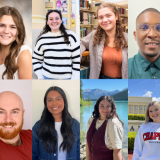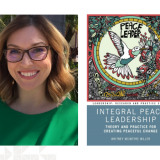Critical Pedagogy in China? Really?
August 12, 2016
It’s difficult grasp the full import of this historic event because there exists a prevailing assumption that a Communist country such as China would not be interested in an approach to pedagogy that is founded on the development of critical consciousness and social transformation. And yet, that’s precisely where we, Peter McLaren and Suzanne SooHoo spent the month of June—participating in building infrastructure for critical pedagogy in northeast China. We were invited by the administration of Northeast Normal University (NENU) in Changchun, the capital and largest city of Jilin Province, in the northeast of China, to engage with graduate students in works by Paulo Freire and Peter McLaren. Furthermore, both of us were given three-year appointments as honorary directors of the Center for Critical Pedagogy Research (Peter had already been appointed as Honorary Director of the Center in 2015). Peter has held a Chair Professor appointment at NENU (the highest rank given to a foreign professor) for the past 3 years and his position is currently in the process of being renewed for another 3 years.

Suzi and Peter lecture
This year, Suzanne accompanied Peter to give 4 lectures and was also invited to co-teach a class with Peter. Both of us were pleasantly surprised at the warm reception we received not only at NENU but at neighboring universities and local schools which resulted in three-year appointments for us as School Development Consultants of Dong An, an experimental elementary school attached to NENU located near the Museum of the Imperial Palace of the Manchu State, sometimes referred to as the Puppet Emperor’s Palace (Wei Huang Gong). One of the future events in the works at the Center for Critical Pedagogy Research is to bring critical scholars from different parts of the world to a conference to be hosted at NENU in 2017, including Paulo Freire’s wife, Nita Freire.
Peter’s Reflection
Three years ago, when I was appointed as Chair Professor at NENU, I was surprised by the invitation to bring critical pedagogy to China. The recent establishment of the Center for Critical Pedagogy Research is to my knowledge the first attempt to systematically engage critical pedagogy in the history of Chinese education. There have been occasional works by critical educators that have been translated into Mandarin, but now works by critical educators are receiving more attention. For instance, there is a team of graduate students translating some of my recent books. I am honored by the reception to my work, and by the kindness and loving generosity of the Chinese students and professors. Having Dr. SooHoo with me during this summer was very special for me. She was a huge hit with the faculty and students and it gave me the opportunity to team teach with Dr. SooHoo. I must say that I learned a lot from Suzi, who is one of the best practitioners of critical pedagogy I have ever encountered. She embodies a deep humility yet at the same time a strength and intellectual fortitude that was recognized by everyone who had the good fortune to work with her. No wonder some of the students shed tears when our class was over. It is hard to tell how critical pedagogy will play out in China, but at least I know that a seed has been planted.
Suzi’s Musings about China
“My Grandmother had bound feet. My father was born in China. I am a third generation Chinese American professor. It’s not often that I speak to an audience where all the faces look like mine“ – these were the opening lines of the lectures I gave in China last month to fellow university and school educators. They were curious about their American born cousin and I was eager to know them. In the classrooms, I would learn about their definitions of good teaching and learning and their theoretical/philosophical foundations. At social hours, I learned about their daily lives as we shared meals. They were hungry for western ways of thinking about schooling as I responded to their requests to bring my practitioner examples of action based inquiry forward.

China High School grand opening with Peter and Suzi as International Consultants
The concept of dialogue was intriguing to the students. It was not customary in classrooms or lecture halls to carve time for dialogue pairs or groups. One student explained that telling or listening to the ideas of their peers may not be time well spent. Instead, “we want to hear the teacher’s ideas. My ideas are not as important as yours”, he said. This sentiment reflected traditional principles of respect and humility of not drawing attention to one’s self. I pondered, how does dialogue occur between you and me if there is no me? It was their interest in the works of scholar and activist Paulo Freire and their two friendly visiting professors (。◕‿◕。) that encouraged them to explore a different discourse which they ultimately enjoyed as evidenced in student final reflections.
As a result of this observation, I bring back with me questions about the role of tradition in contemporary society. What history or traditions do I consciously bring forward in my life? When things change, what stays the same and why?
One of my doctoral students Kevin Stockbridge told me you can only understand who you are if you know where you have been. So what influence has my ancestors had in my life? What did they intend for me to do? I am a senior professor now and one of only 10 Asian American endowed chairs in the United States http://diverseeducation.com/article/63996/. I hope I haven’t disappointed them. My agency to bring traditions forward causes me to reflect, which traditions are relevant and useful in this modern globalized world?
Peter McLaren and his wife Angie made this trip possible for me. I am indebted to them for tethering my life to my Chinese ancestors as we collectively craft a space with our Northeast Normal University colleagues for Chinese Critical Pedagogy.
Guest Authors:
Peter McLaren, Distinguished Professor in Critical Studies.
Suzanne SooHoo, Hassinger Chair of Education, CES.


